February 5, 2025 | 09:12 GMT +7
February 5, 2025 | 09:12 GMT +7
Hotline: 0913.378.918
February 5, 2025 | 09:12 GMT +7
Hotline: 0913.378.918
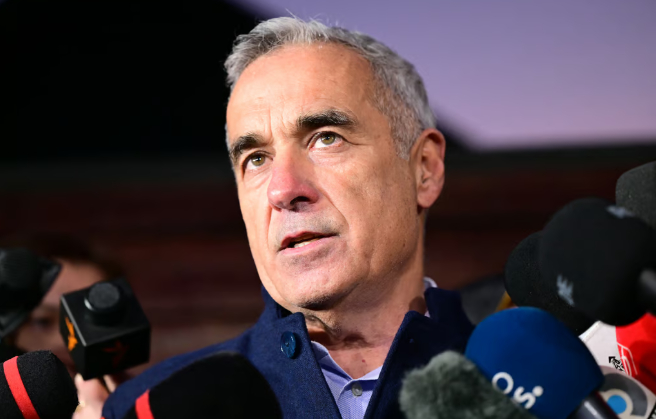
Călin Georgescu. Photo: Daniel Mihailescu/AFP via Getty Images.
There are several reasons why Călin Georgescu is a political anomaly.
A 62-year-old ultranationalist, he won the first round of the Romanian presidential election last weekend by attracting young voters on TikTok. Despite being the putative leader of a NATO member, he’s praised Vladimir Putin as “a man who loves his country.” And amid a dire economic situation, he has appealed to religiously minded voters with traditional values.
All this pales in comparison to his views on nature and farming. A soil scientist, Georgescu spent years working for the Environment Ministry and the United Nations Development Programme, fighting waste dumping and water pollution. Yet, in his insurgent campaign, he railed against the European Union’s Green Deal, pushed to boost food production, and said agrarian workers would lead Romania’s reindustrialization.
In a country where farmers make up 23 percent of the labor force and 18 percent of the population — by far the most of any EU state — Georgescu’s agrifood policies are crucial. His 17-page manifesto is titled “Food, Water, Energy: A return to the roots of the Romanian nation,” and serves up a sugary hit of utopian, feel-good measures for rural areas.
“He has the same ideas as Robert F. Kennedy Jr.,” said Cristian Pîrvulescu, professor of political studies at Bucharest’s main university, referring to the former United States presidential candidate who joined Donald Trump’s successful campaign and was rewarded with the nomination to become health secretary.
Like RFK Jr., Georgescu espouses a “radical ecologism” that defies the usual left-right divide, dipping into anti-globalist leitmotifs shared by extremists on both sides. He attacks intensive farming, with its “toxic” agrochemicals and “polluting and inefficient” output, vowing instead to “support peasant farming and traditional, organic agriculture.”
“Synthetic insecticides and pesticides will be replaced with ecological alternatives, and long-lasting chemicals will be replaced with active substances from nature,” according to his manifesto. This will preserve “forests and clean rivers, saving bees, [and ensuring] clean and quality food,” his screed promises.
The university professor adds that “it is crucial to protect the soil” since “soil is Romania’s first strategic resource.” This all costs money and the state should champion its farmers, with “capitalization of small producers, support for local markets, [and] a network of popular and cooperative banks” to finance an agroecological revolution.
The European Union’s Common Agricultural Policy (CAP), its farm subsidy pot, should be redirected to smallholders (who account for over 90 percent of Romanian farmers) and the country’s system of extensive, small-scale production “should become a model to follow in the Balkans and in Europe,” Georgescu demands.
This may sound anachronistic, but it’s good politics. As elsewhere in Europe, there is widespread unhappiness in Romania about the shift toward industrial-scale agriculture, even as the country profits from its role as a major cereal supplier for transnational commodity traders, and transit and processing hub for imported Ukrainian grain.
Farmers protested at the border with Ukraine in January and, despite EU restrictions on imports of Ukrainian agricultural goods, Bucharest has repeatedly complained to Brussels that cheap honey and sunflower oil are being dumped on its market, hurting local producers.
“Clearly that frustration brewed,” said Radu Magdin, a political analyst and former adviser to the Romanian government.
Add to that this year’s harvest-killing droughts (which wiped out €2 billion in crops), speculative land grabbing by real estate and industrial magnates, and the stubbornly high cost of fertilizer and animal feed, and you’ve got a “perfect storm,” noted Magdin.
Because of the plight of its farmers, Romania has in recent years also been a leading proponent of measures to ensure that big foreign supermarkets there source their fresh produce locally, sparking tensions with both Brussels over single market rules and the retailers themselves.
Georgescu will be fiercely opposed in the upcoming ballots, both in Sunday’s parliamentary election and the presidential runoff on Dec. 8. However, both Magdin and Pîrvulescu think he stands a good chance of riding to power on a wave of discontent.
“When you tell a country who is strong in agriculture that their prices are sometimes higher than in other markets, people don’t understand,” reflected Magdin. “Some people would say: ‘But why is it we’re doing this? Because we’re being robbed. Somebody is tricking us.’”
In that, Georgescu is part of a wave of far-right figures trying to sway farmers with fascist-era narratives. His call for agricultural autarky is part of that, though not exclusively. Food self-sufficiency was a goal of both extreme-right and left-wing movements in the 20th century, yet it has returned to the mainstream in France, Poland and the Netherlands.
More important is his focus on the purity of nature, this “very bucolic philosophical perspective,” said Magdin. The idealization of rural and farm life was a key element of ultranationalism in the 1930s, summed up by the “blood and soil” slogan of Nazi Germany. It was these beliefs that inspired the birth of organic agriculture and so-called “natural eating.”
Georgescu, who has described Romania’s World War II-era fascists as “national heroes,” may struggle to attract moderates to his cause. Yet the radical ecologism he espouses is sinking its roots into European politics.
(Politico)
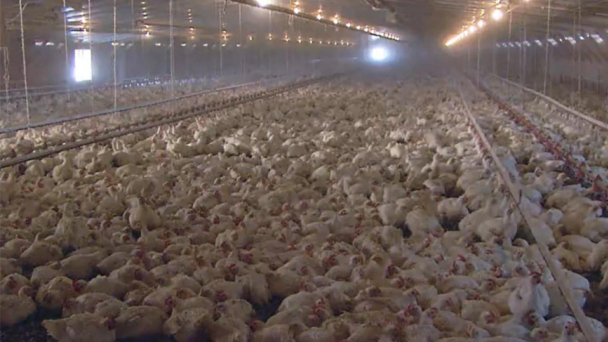
(VAN) There are seven generations of Corwins in the Aquebogue, Long Island, town cemetery.

(VAN) Agricultural experts warned that the existing farm labor shortage, when combined with a possible 25 percent tariff on Mexican and Canadian imports threatened by the Trump administration, could drive up food prices nationwide.
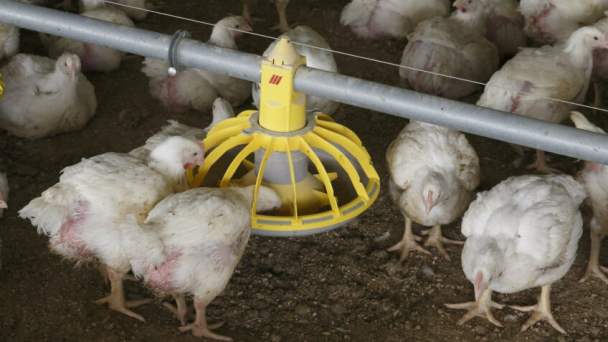
(VAN) The South African Poultry Association (SAPA) says that it remains optimistic about 2025 amid ongoing challenges uncertainties, with highly pathogenic avian influenza remaining the most pressing concern.
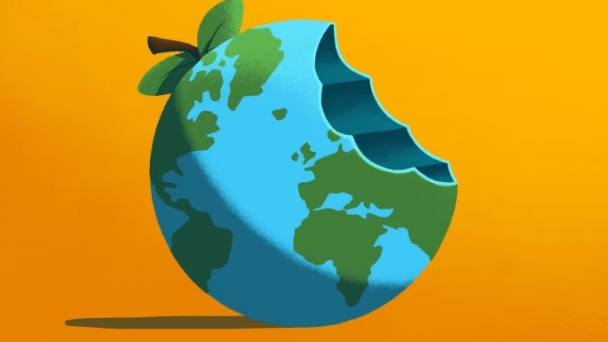
(VAN) Averting a tragic mismatch between global food supply and demand requires moonshot ideas.
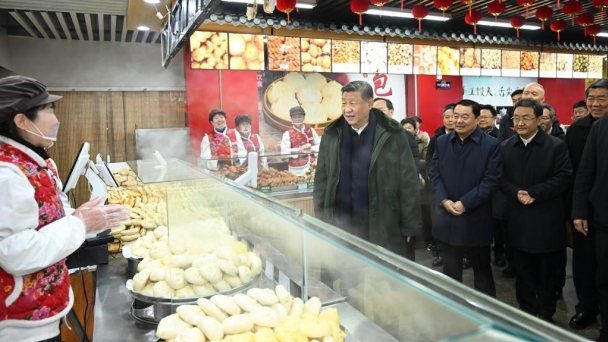
(VAN) Xi Jinping, general secretary of the Communist Party of China Central Committee, visited a food market in Shenyang, capital city of Northeast China's Liaoning province.
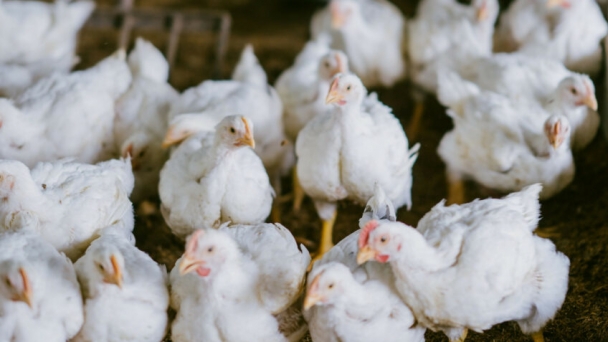
(VAN) The inability of poultry breeding companies to prevent chicks from being infected with a bacteria is forcing producers to turn to antibiotics at an early stage.
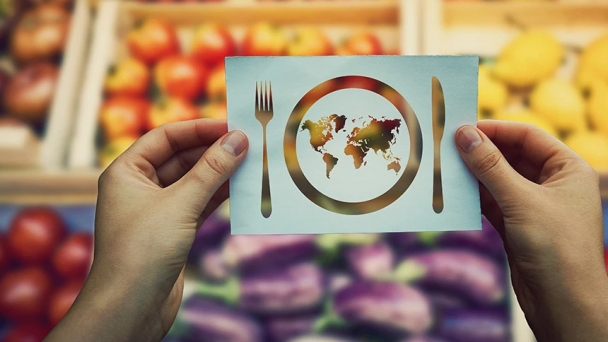
(VAN) The World Bank’s agricultural prices index gained momentum in the second half of 2024, propelled by record-breaking price increases in beverages.